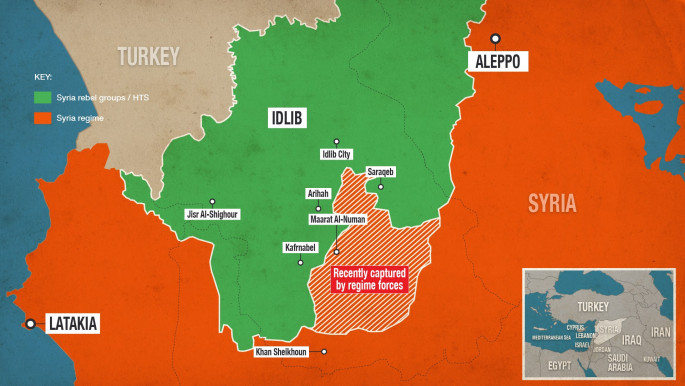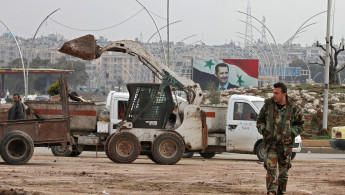Damascus-Aleppo highway reopened for first time in 8 years following brutal regime advance
The highway that links the Syrian capital with the northern city of Aleppo is open for public use for the first time in nearly eight years after regime forces recently captured parts of it that had been held by insurgents, the transportation minister said on Saturday.
The reopening of the M5 highway came as another Turkish soldier was killed in northwestern Syria in shelling by government forces, according to Turkish state media.
The full control of the highway known as the M5 by government forces earlier this month marked one of the biggest prizes for President Bashar al-Assad in the nearly nine-year conflict.
Transport Minister Ali Hammoud said in remarks carried by state media that the highway is open to the public, adding that work has started on the railway leading to Aleppo and it should return to business in the coming months.
The opening of the highway reduces the trip between Damascus and Aleppo by about 90 kilometers (56 miles) compared to the desert road that had been in use over the past years, state news agency SANA said.
The M5 is a strategic highway that starts in southern Syria, near the border with Jordan, and runs all the way north to the city of Aleppo near the Turkish border.
 |
|
| Click to enlarge |
The 450-kilometer (280-mile) highway links the country's four largest cities and population centers: Damascus, Homs, Hama and Aleppo, cutting through Idlib province.
Syrian government forces have been on the offensive in Idlib and parts of Aleppo province, the last remaining rebel stronghold in the country, since early December capturing dozens of towns and villages from insurgents. The Russian-backed offensive has also displaced more than 900,000 people forcing many of them to leave to area close to the border with Turkey.
Assad gradually lost control of the M5 starting in 2012, when various rebel groups fighting to topple him began seizing parts of the country. In recent years, Syrian troops have been regaining segments of the highway from southern Syria to the suburbs of Damascus all the way to Aleppo.
Also on Saturday, an unnamed Syrian military official issued a warning to Turkey that orders have been given to the country's air defense units to open fire on warplanes that violate Syria's airspace.
A Turkish soldier was killed in Syria’s Idlib province, state-run Anadolu news agency reported Saturday. He was at least the 16th member of the Turkish military to die in February during an offensive by Syrian government forces.
Citing a statement from the governor of Turkey’s Gaziantep, the soldier’s home province, Anadolu said he was killed by “a bomb dropped by regime forces.” It named him as a member of a tank unit.
The Turkish Defense Ministry said 21 “regime targets” were destroyed in response to the soldier’s death.
Turkish Defense Minister Hulusi Akar spoke with his Russian counterpart Sergei Shoigu about Idlib on Saturday, the Turkish Defense Ministry said, without providing further details. Russia is the main backer of Assad and its air force has been instrumental in the regime's military success.
Turkey and Russia support rival groups of the Syrian conflict and Ankara has sent thousands of troops into Idlib in recent weeks.
Syrian opposition activists reported airstrikes on rebel-held villages leaving at least one civilian, a child, dead.
On Friday, Turkey's president urged Russian President Vladimir Putin in a telephone call to “restrain” the Syrian government and halt the humanitarian crisis unfolding in northwestern Syria where the Syrian military offensive has concentrated.
Agencies contributed to this report.
Follow us on Twitter and Instagram to stay connected





 Follow the Middle East's top stories in English at The New Arab on Google News
Follow the Middle East's top stories in English at The New Arab on Google News
![Netanyahu furiously denounced the ICC [Getty]](/sites/default/files/styles/image_330x185/public/2024-11/GettyImages-2169352575.jpg?h=199d8c1f&itok=-vRiruf5)
![Both Hamas and the Palestinian Authority welcomed the ICC arrest warrants [Getty]](/sites/default/files/styles/image_330x185/public/2024-11/GettyImages-2178351173.jpg?h=199d8c1f&itok=TV858iVg)
